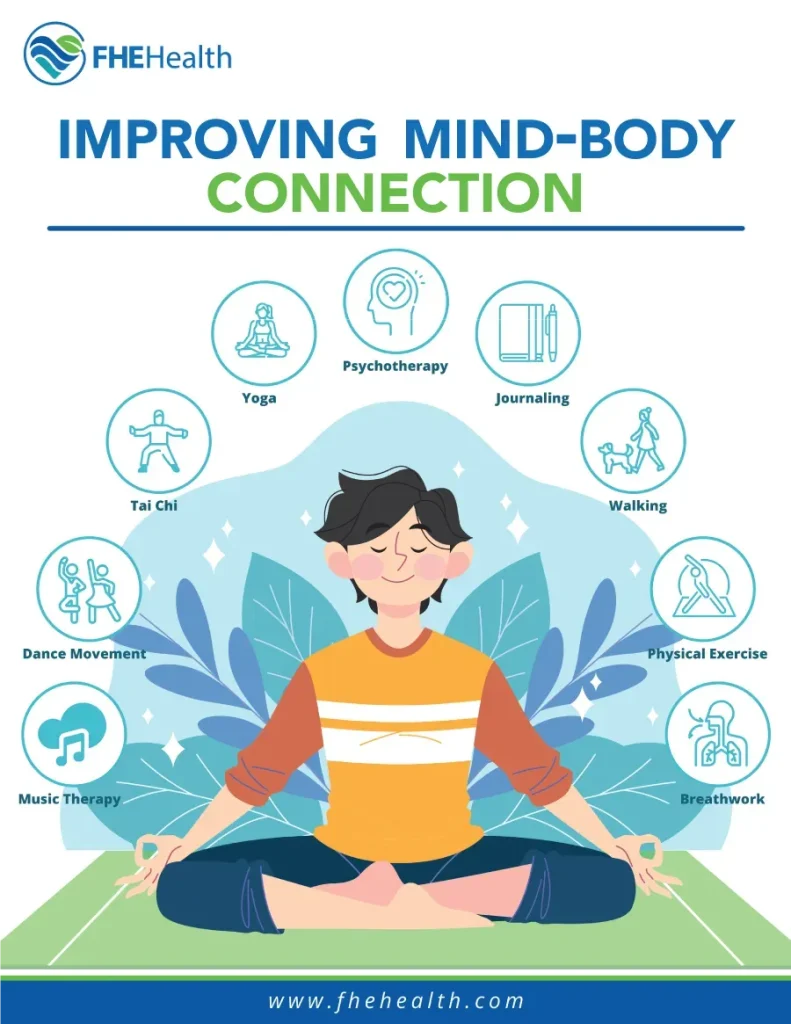Mind-Body Health stands as a practical approach to well-being, recognizing how thoughts, feelings, bodies, and environments shape daily life. When stress builds, it can ripple through sleep, mood, digestion, energy, and motivation, underscoring the need for mindful habits. By cultivating mindfulness practices that align the body and mind, you can reduce the physiological impact of stress while lifting mood and resilience. This article explores the core idea of mind-body health and offers actionable practices that support relaxation, lower the body’s stress response, and improve mood. Whether you’re dealing with daily stressors or seeking a sustainable way to feel better, these approaches can become part of your routine.
Viewed through the lens of body-mind science, this field emphasizes how physiological regulation and mental processes influence one another. In plain terms, it describes holistic wellness that links nervous system balance, cognitive appraisal, and daily routines. By training the nervous system toward relaxation and by reframing stressful situations, people can enhance emotional steadiness and physical vitality. Practices such as slow breathing, purposeful movement, and environment-aware habits support a harmonized state of awareness. In everyday life, this approach translates into accessible rituals that nurture resilience, mood, and overall well-being.
Mind-Body Health for Everyday Stress Management and Mood Improvement
Mind-body health sits at the intersection of thought, feeling, and physical state, offering a practical approach to managing daily stress and promoting mood improvement. When stress compounds, it can disrupt sleep, digestion, energy, and motivation, but intentionally aligning breathing, movement, and attention helps quiet the body’s stress response and lift mood. By framing Mind-Body Health as a set of repeatable habits rather than a quick fix, you create a sustainable path to better stress management and emotional balance.
Understanding the body’s role in stress means recognizing how the autonomic nervous system shifts between sympathetic activation and parasympathetic calm. Deliberate practices—such as mindfulness practices, slow breath, and gentle movement—trigger physiological changes that support mood and resilience. Even small, consistent actions can interrupt the stress cascade, making room for clearer thinking, steadier energy, and a more hopeful outlook.
To make this framework actionable, incorporate a simple daily routine: a morning reset to set intention, a brief midday pause for breath work, and an evening wind-down that promotes restorative sleep. These steps reinforce the body-mind connection and provide a reliable foundation for ongoing stress reduction techniques, ultimately contributing to sustained mood improvement across daily challenges.
Strengthening the Body-Mind Connection through Mindfulness, Stress Reduction Techniques, and Mood Support
Developing a strong body-mind connection means cultivating nonjudgmental awareness of thoughts, sensations, and bodily signals. Mindfulness practices help you observe stress without spiraling, reducing the emotional charge and shifting the nervous system toward a calmer baseline. This mindful stance supports both stress management and mood improvement by creating space between stimulus and response.
Practical techniques—ranging from paced breathing and progressive relaxation to journaling and cognitive reframing—build resilience by retraining how you respond to stress. Regular practice strengthens attention, lowers cortisol during challenging moments, and helps you interpret stress signals as information rather than threats. A few minutes most days can accumulate into meaningful changes in mood and overall well-being.
Pair mindfulness with movement, sleep hygiene, and social connection to anchor the body-mind connection in everyday life. Gentle activities like yoga or tai chi, combined with balanced meals and supportive conversations, create a comprehensive approach to stress reduction techniques that consistently feed mood improvement and durable stress management.
Frequently Asked Questions
What is Mind-Body Health, and how can it support stress management and mood improvement?
Mind-Body Health is the practice of aligning thoughts, feelings, body, and environment to influence stress and mood. Because stress is a whole-body experience, effective stress management and mood improvement come from small, consistent actions that engage the body-mind connection. Start with brief mindfulness practices or diaphragmatic breathing (for example, 5 minutes, then longer as you’re comfortable) to shift toward rest-and-digest. Add gentle movement (yoga, tai chi, or a brisk walk), consistent sleep and balanced nutrition, social connection, and cognitive reframing. These small daily steps—taken with patience—build resilience and clearer mood over time.
Which practical Mind-Body Health practices most effectively reduce stress and support mood improvement?
Practical Mind-Body Health practices include simple, repeatable steps that cover both mind and body. Key options: mindfulness practices and slow, diaphragmatic breath to calm the nervous system; body-mind connection through gentle movement like yoga or walking to reduce tension and lift mood; sleep hygiene and balanced meals to support emotional regulation; progressive relaxation and guided imagery to ease physical tension; social connection and emotional awareness to buffer stress; and journaling or cognitive reframing to reduce the emotional charge of stress. Build a daily routine (short morning reset, a midday breath or walk, an evening wind-down). With consistency, these stress reduction techniques strengthen the body-mind connection and enhance mood improvement.
| Topic | Key Points |
|---|---|
| Mind-Body Health (Definition) |
|
| Stress Response & Impact |
|
| Core Mechanisms & Pathways |
|
| Daily Life Habits |
|
| Practical Mind-Body Practices (Overview) |
|
| Building a Daily Mind-Body Routine |
|
| Overcoming Barriers |
|
| Integrating Mind-Body Health into Everyday Life |
|
| When to Seek Additional Support |
|
Summary
Mind-Body Health offers a practical framework for reducing stress and boosting mood by aligning mental processes with physical actions. By weaving mindfulness, controlled breath, mindful movement, sleep and nutrition, social connection, and cognitive reframing into daily life, you build a resilient system that supports both emotional well-being and physical health. The aim is simple: cultivate small, sustainable habits that nurture the mind and body in tandem, reinforcing the body-mind connection and enabling calmer stress responses and a steadier mood. With patience and consistency, mind-body health becomes a lasting approach to living well, even amid life’s inevitable pressures.



